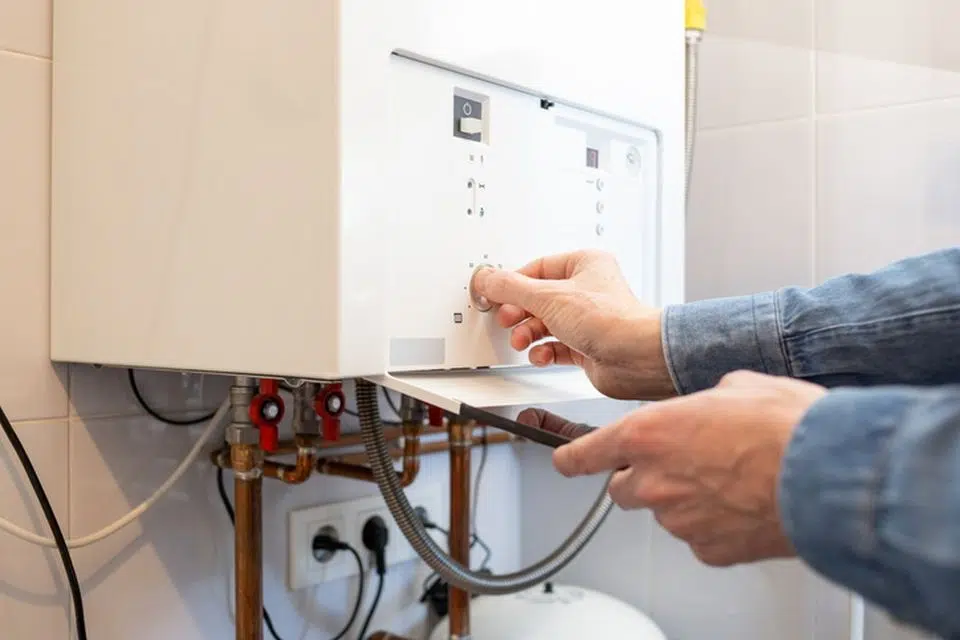
Understanding Your Home's Water Heating System
Your home's water heater is a crucial appliance, providing the warm water you need for showers, baths, laundry, and dishwashing. But how do they work, and what types are available? Let's explore the fundamentals.
At its core, a water heater heats water and stores it until you need it. Traditional models use a tank to hold and heat water, while tankless models heat water on demand. Understanding the differences is key to choosing the right system for your needs.
Types of Water Heaters
-
Tank Water Heaters: These are the most common type. They store a large volume of water and continuously heat it, ensuring a ready supply. However, they can waste energy by constantly heating water, even when you're not using it.
-
Tankless Water Heaters: Also known as on-demand heaters, these heat water as you need it. This eliminates standby energy loss and provides an endless supply of hot water. However, they can have a higher initial cost.
-
Heat Pump Water Heaters: These energy-efficient models use electricity to move heat from one place to another, rather than generating heat directly. They can significantly reduce your energy bills.
-
Solar Water Heaters: Utilizing the sun's energy, these systems can provide a sustainable and cost-effective way to heat water. They are especially beneficial in sunny climates.

Maintaining Your Water Heater for Optimal Performance
Proper maintenance is essential to ensure your water heater operates efficiently and lasts longer. Regular checks and maintenance can prevent costly repairs and extend the life of your appliance.
Key Maintenance Tips
-
Flush the Tank: Sediment buildup can reduce efficiency and damage your heater. Flushing the tank annually removes sediment and keeps your heater running smoothly.
-
Check the Anode Rod: This rod protects your tank from corrosion. Replacing it every few years can significantly extend the life of your heater.
-
Inspect the Temperature and Pressure Relief Valve: This valve releases excess pressure to prevent explosions. Test it regularly to ensure it's functioning correctly.
-
Insulate the Pipes: Insulating hot water pipes can reduce heat loss and improve efficiency.
Troubleshooting Common Water Heater Issues

Even with proper maintenance, you may encounter issues with your water heater. Knowing how to troubleshoot common problems can save you time and money.
Common Problems and Solutions
-
No Hot Water: Check the circuit breaker or gas supply. If those are fine, the heating element or thermostat may be faulty.
-
Lukewarm Water: This could be due to a faulty thermostat, sediment buildup, or a problem with the heating element.
-
Leaks: Check for leaks around the tank, pipes, and valves. Leaks can indicate corrosion or loose connections.
-
Strange Noises: Rumbling or popping noises can be caused by sediment buildup. Flushing the tank can usually resolve this issue.
The Importance of Water Quality for Your Heater

The quality of your water plays a big role in the lifespan and efficiency of your heater. Hard water, for instance, contains high mineral content that can lead to sediment buildup and corrosion.
Using a water softener can help mitigate the effects of hard water, protecting your water heater and improving its performance. Regular water testing can help you understand the quality of your water and take appropriate measures.
Choosing the Right Water Heater for Your Needs
Selecting the right water heater depends on several factors, including your household size, energy efficiency preferences, and budget. Consider the following when making your decision:
-
Capacity: Choose a heater with sufficient capacity to meet your household's hot water needs.
-
Energy Efficiency: Look for models with high energy factor (EF) ratings to save on energy costs.
-
Fuel Type: Decide whether you prefer electric, gas, or solar-powered heaters.
-
Installation: Consider the cost and complexity of installation, especially for tankless or solar models.
No comments:
Post a Comment
Note: Only a member of this blog may post a comment.